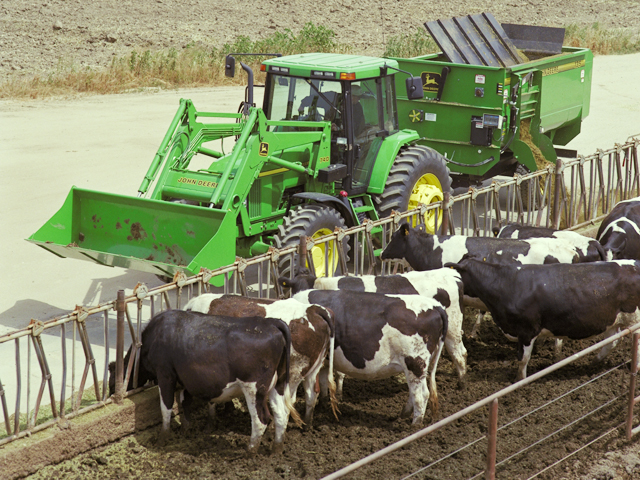Ask the Vet
Prebiotics and Probiotics for Cattle
READER QUESTION:
There has been a lot of talk about probiotics, and now I'm hearing more about prebiotics in cattle feed. Can you explain what these things are and what they do?
DR. MCMILLAN'S ANSWER:
Probiotics are essentially "good bugs," including bacteria and yeasts, fed to improve digestion and overall animal health. Prebiotics are not living organisms and they are non-digestible. They essentially serve as food for these living microorganisms in the gut, helping them grow and multiply.
There are probiotics that can help improve feed efficiency and others that can improve immune function. Some probiotics work in the rumen to improve its function, while others help maintain a healthy intestinal tract. Since probiotics are living organisms, they and the feeds they are in must be properly handled at each stage. Read what the manufacturer says pertaining to proper storage and follow those recommendations. Dead bugs won't do you much good.
It's also a good idea to talk to producers in the area who have used some of these products for a season or two. Much of the research that's been done on these products comes from the manufacturers themselves, and the conditions they've tested those products in may not bear much resemblance to your operation. So, talk to other producers, ask your herd veterinarian for their thoughts, and if you decide to try any of these products, keep track of your own data so you'll be able to prove to yourself whether they are effective in your environment.
**
Editor's Note:
Please contact your veterinarian with questions pertaining to the health of your herd or other animals. Every operation is unique, and the information in this column does not pertain to all situations. This is not intended as medical advice but is purely for informational purposes.
Write Dr. Ken McMillan at Ask the Vet, 2204 Lakeshore Dr., Suite 415, Birmingham, AL 35209, or email vet@progressivefarmer.com.
(c) Copyright 2021 DTN, LLC. All rights reserved.
P[L1] D[0x0] M[300x250] OOP[F] ADUNIT[] T[]






